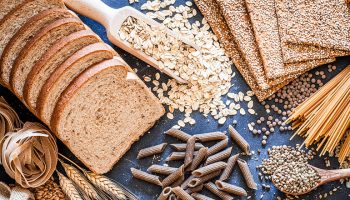Do you have sneezing, coughing, itching, watery eyes, headaches and fatigue? It’s that time of year again. The seasonal allergies are kicking in. But don’t worry – there are many ways to treat seasonal allergies so you can get back to your everyday life! This blog post is about common seasonal allergy treatments. Let’s discuss the causes, symptoms and types of treatment for seasonal allergies.
Causes of seasonal allergies: Plants, grass, and weeds commonly cause pollen allergies. These seasonal allergy symptoms can lead to itchy or watery eyes, sneezing, nasal congestion, throat irritation, and coughing.
- Mold: Mold is one of the most common allergens that affect the air. You can find it indoors and outdoors. It does not cause symptoms until there is excessive accumulation. Mold allergies are more likely to occur during the spring/summer seasons when individuals spend much time outside or in areas where spores are present.
- Animal dander: Seasonal allergies caused by animal dander are typically associated with pets such as cats and dogs. Allergens from animals can attach themselves to clothes, furniture, carpets, and fur, making them easily transported throughout the home. Pet allergen symptoms usually only affect the eyes and skin.
- Weather changes: Seasonal weather changes are often the cause of certain types of seasonal allergies. Individuals who experience allergies typically have higher levels of sensitivity to changes in the weather. For example, sudden temperature changes or humidity fluctuations can trigger allergy symptoms.
Symptoms of seasonal allergies
Seasonal allergies can cause sneezing, itchy eyes, a runny nose, coughing, sinus congestion, and throat irritation. You can have more than one type of seasonal allergy simultaneously.
What are the ways to prevent seasonal allergies?
- Avoid outdoor activity during high pollen counts.
- Maintain the humidity levels at 50% or lower to decrease mold spores.
- Use an air filter for your heating/AC system. It helps to ensure that the indoor air is clean and free of allergens before it enters your living space.
- Keep windows closed when the pollen count is higher outside; open windows at night after pollen count has gone down significantly.
- Vacuum carpets often, especially if you have pets, leading to more dander around your house. Wash any pet bedding weekly as well.
- Use a protective mask when mowing grass, raking leaves, and performing other outdoor tasks that lead to high pollen levels in the air.
- Speak with your doctor about taking medications for seasonal allergies.
Common ways to treat seasonal allergies
Prevention:
Prevention is often the best way to treat seasonal allergies. You can prevent mold allergy symptoms by cleaning areas that contain mold regularly. It is also essential to reduce humidity levels in your home during seasons when individuals are more sensitive to allergens. Pets should not be allowed in bedrooms, and you should wash clothing after coming in contact with animals, which prevents pet dander from spreading through the home. If you suspect that there may be high pollen counts in your area, stay indoors on days when pollen counts are higher than usual and wear sunglasses whenever you go outside. Be sure to take extra precautions if you know that your allergies tend to worsen when specific changes occur in the weather or season!
Medications:
Numerous over-the-counter medications provide relief from seasonal allergy symptoms. Antihistamines help prevent runny noses, watery eyes, and sneezing caused by allergic reactions. Decongestants work best when the sinuses clog due to excessive mucus buildup during an allergy attack. Nasal sprays relieve nasal congestion by reducing inflammation and opening blocked areas due to inflamed blood vessels.
Intranasal steroids:
These medications work by reducing inflammation and suppressing immune system cells in the nasal passages. They can be prescribed by a physician or purchased over-the-counter. Suppose you have been experiencing symptoms for an extended period. In that case, your doctor may recommend an intranasal steroid to help reduce congestion, sneezing, and itching to improve your overall quality of life!
Alternative treatment:
Some individuals may choose to treat their symptoms with alternative medical treatments. Homeopathic treatment for seasonal allergy is one of the best treatments for seasonal allergy. It gives relief from allergies without the drowsiness or other side-effects associated with common prescription drugs to treat hay fever. It is a popular choice among those who prefer alternative medicine treatments to their symptoms. Homeopathic medicine treats the root cause and boosts the immune system.
If the seasonal allergy symptoms persist for more than three days or get worse, visit a homeopathic clinic.






